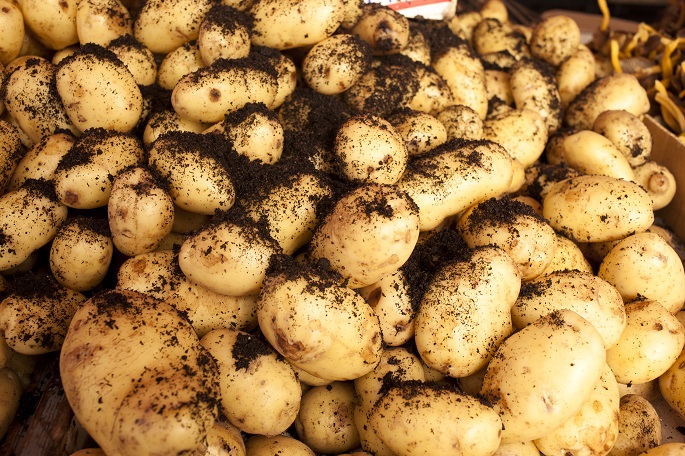Germany faces potato shortage after hot and dry summer
Published : 12 Sep 2018, 19:39
Germany faces a severe potato shortage as a consequence of unusually hot and dry weather this summer, the German Farming Society (DLG) warned on Wednesday.
"We are expecting one of the smallest potato harvests of all times in Germany", Martin Umhau, a member of the DLG supervisory board, told the German press agency (dpa).
According to Umhau, an anticipated fall in potato yields from 11.7 million tons in 2017 to 8.5 million tons in 2018 could hereby lead to an increase in consumer prices for the popular crop by up to 30 percent.
Umhau was speaking ahead of the start of the "PotatoEurope 2018" agricultural trade fair, the largest of its kind in Europe, which opened at Bockerode castle in Lower Saxony on Wednesday. A focus of this year's event will be placed on the implications of a recent drought experienced in many European countries between June and August.
Potato farmers are only one of several agricultural producers in Germany who have highlighted that they face the prospect of widespread crop failures due to the hot and dry summer weather. Responding to such industry concerns, federal and state-level governments announced that they would set aside 340 million euros (394 million U.S. dollars) in financial aid for farmers who suffered particularly heavy losses.
In order for German farmers to receive the state assistance in question, they must demonstrate that more than a 30 percent threshold of their average annual crop yield has been destroyed this year. State governments previously estimated that around 10,000 agricultural producers across Germany currently face a high risk of bankruptcy because of the heatwave.
Earlier, the German Farmers Association (DBV) downgraded its annual forecast for grain yield for a second time in 2018 from 41 million tons to 36 million tons. DBV vice-secretary general Udo Hemmerling described the development of German crop output in the current year as the "worst harvest of the century." Aside from grain crop failures, farmers have pointed to a shortage of animal feed in particular as posing a risk to their financial solvency.
The ministry for agriculture has noted that natural catastrophes and extreme weather patterns are historically well-known phenomena to mankind and that Germany remains a relatively safe country for agricultural production in international comparison. Nevertheless, it warned that domestic weather risks were set to increase in coming years as a consequence of climate change.
"Extremer weather patterns like snap freezes, heat, floods and storms can cause significant and long-lasting damage to the German agricultural sector within short periods of time. (These events) destroy cultivated plants and lead to crop failures", the ministry wrote on its website.
Commenting on the latest shortfalls in agricultural output, the Potsdam Institute for Climate Impact Research (PIK) also emphasized that temperatures which were still considered unusual for July could become normal in Europe within the coming decades.
"In Germany, average temperatures have already risen by 1.4 degrees since the industrial revolution", PIK researcher Fred Hattermann told press. Higher average temperatures caused by greenhouse gas emissions were hereby likely to lead to more extreme heatwaves in the future.
Potatoes first reached Germany from South America in the early modern period following the arrivals of Amerigo Vespucci and Christopher Columbus in the "new world." The nutritious and robust nightshade plant quickly became one of the most popular staple foods in the country, with each German consuming 58 kg thereof on average in 2017 according to a Ministry for Agriculture estimate.
Lower Saxony is Germany's largest regional potato producer and accounts for around 40 percent of nationwide output. Internationally, Germany is the sixth largest potato producer behind the United States, Ukraine, Russia, India and China.


